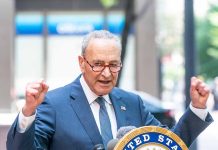
Generation Z is unexpectedly becoming America’s most conservative generation in decades, defying long-held assumptions that younger voters naturally lean left.
Top Takeaways
- Recent polling shows Trump’s approval rating among 18-29-year-olds reached 52.7% in February, with Trump winning 47% of this demographic in 2024, up from 36% in 2020
- Young men in particular are shifting rightward, creating a 23-percentage-point gender gap among voters under 30
- Democratic pollster David Shor expressed shock at this trend, calling Gen Z “potentially the most conservative generation that we’ve experienced maybe in 50 to 60 years”
- Many Gen Z men feel alienated by modern feminism, perceive criticism of traditional masculinity, and believe Democrats don’t address their concerns
- Exposure to progressive policies during formative years, pandemic disruptions, and skepticism of mainstream media (only 26% of 18-29-year-olds trust mass media) have contributed to conservative leanings
The Surprising Conservative Shift
Democratic pollsters and political analysts have been caught off guard by a significant rightward shift among Generation Z voters. AP VoteCast analysis reveals Trump won 47% of the 18-29 demographic in 2024, substantially higher than his 36% support in 2020. AtlasIntel polling shows Trump’s approval rating among this age group rose to 52.7% in February, challenging the long-held assumption that younger generations naturally align with progressive values. This trend is particularly pronounced among young men, creating a 23-percentage-point gender gap between male and female voters under 30.
Democratic pollster David Shor expressed astonishment at this development, stating: “This is the thing I am the most shocked by in the last four years—that young people have gone from being the most progressive generation since the Baby Boomers… to becoming potentially the most conservative generation that we’ve experienced maybe in 50 to 60 years.” This admission represents a significant reversal of expectations for Democrats who had counted on Millennial and Gen Z voters to secure future electoral victories.
Democrats staked their entire future on the assumption that young people would be far left no matter what. Instead, Vox founder Ezra Klein admits that Gen Z is the most conservative generation in decades. Among 18-year-olds, Trump won both white women and non-white men.…
— Charlie Kirk (@charliekirk11) March 23, 2025
Gender Divide in Generation Z
One of the most striking aspects of Gen Z’s political orientation is the growing divide between young men and women. Young men are increasingly identifying with conservative viewpoints while their female peers largely maintain progressive stances. This divergence appears driven by several factors including feelings of alienation from modern feminist movements and perceived attacks on traditional masculinity.
Some young women believe that Gen Z men’s rightward shift stems partly from a desire to maintain traditional power dynamics. As one Gen Z woman from a small southern town noted, many young men “are shifting more toward the right side because it’s giving them a chance to still be in control.” Others point to a perceived villainization of straight white males and economic anxieties as driving factors. The increasing economic and social independence of women has further complicated traditional relationship dynamics and perceptions.
Formative Experiences Shaping Conservative Views
Gen Z’s political outlook has been profoundly shaped by growing up during the Obama and Biden administrations, providing them firsthand experience with progressive policies. The COVID-19 pandemic delivered particularly severe blows to this generation through school closures, social isolation, learning losses, and declining trust in public institutions. These disruptions occurred during crucial developmental years, potentially cementing skepticism toward government intervention and progressive policies.
Many Gen Z members have witnessed the effects of progressive policies on issues like border security, crime rates, and homelessness in major cities. Their education has featured strong emphasis on climate change urgency, social justice initiatives, and critical race theory, which many now question. Media trust is remarkably low among this cohort, with only 26% of 18-29-year-olds expressing confidence in mass media. This skepticism has pushed many toward alternative information sources, including conservative outlets and social media personalities who challenge mainstream narratives.
Political Implications for the Future
The rightward shift among Generation Z presents significant challenges for the Democratic Party, which had counted on maintaining dominance among younger voters. New York Times columnist Ezra Klein acknowledged this reality, noting: “Democrats are getting destroyed now among young voters… They thought that this was a last gasp of something and that if Donald Trump couldn’t run up his numbers among seniors and you had Millennials and Gen Z really coming into voting power, that would be the end of this Republican Party. That is just completely false.”
This trend appears to be solidifying rather than reversing, with the conservative movement among young men in particular gaining momentum during Trump’s second term. Political strategists from both parties are now reassessing their assumptions about generational voting patterns. Republicans see opportunities to build lasting relationships with younger voters, while Democrats face the challenge of reconnecting with a demographic they previously took for granted. This shift could fundamentally reshape American politics for decades to come as Gen Z matures into an increasingly influential voting bloc.






















